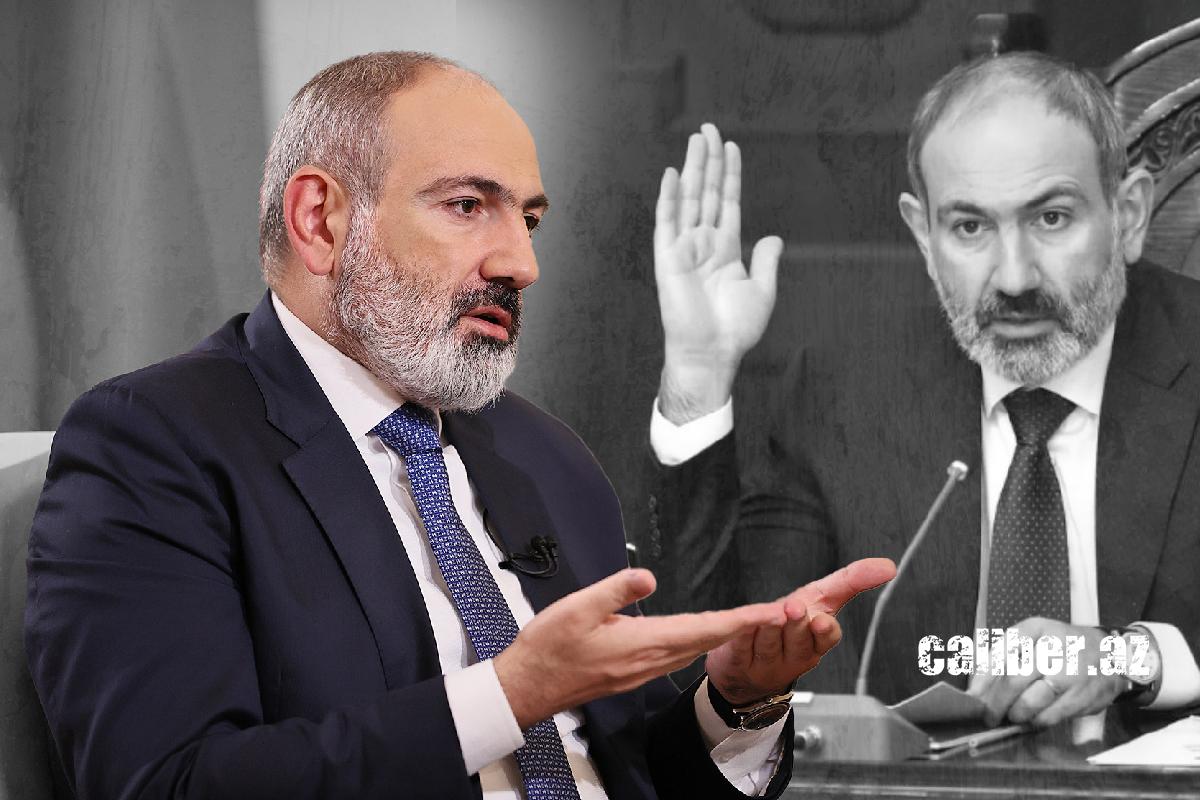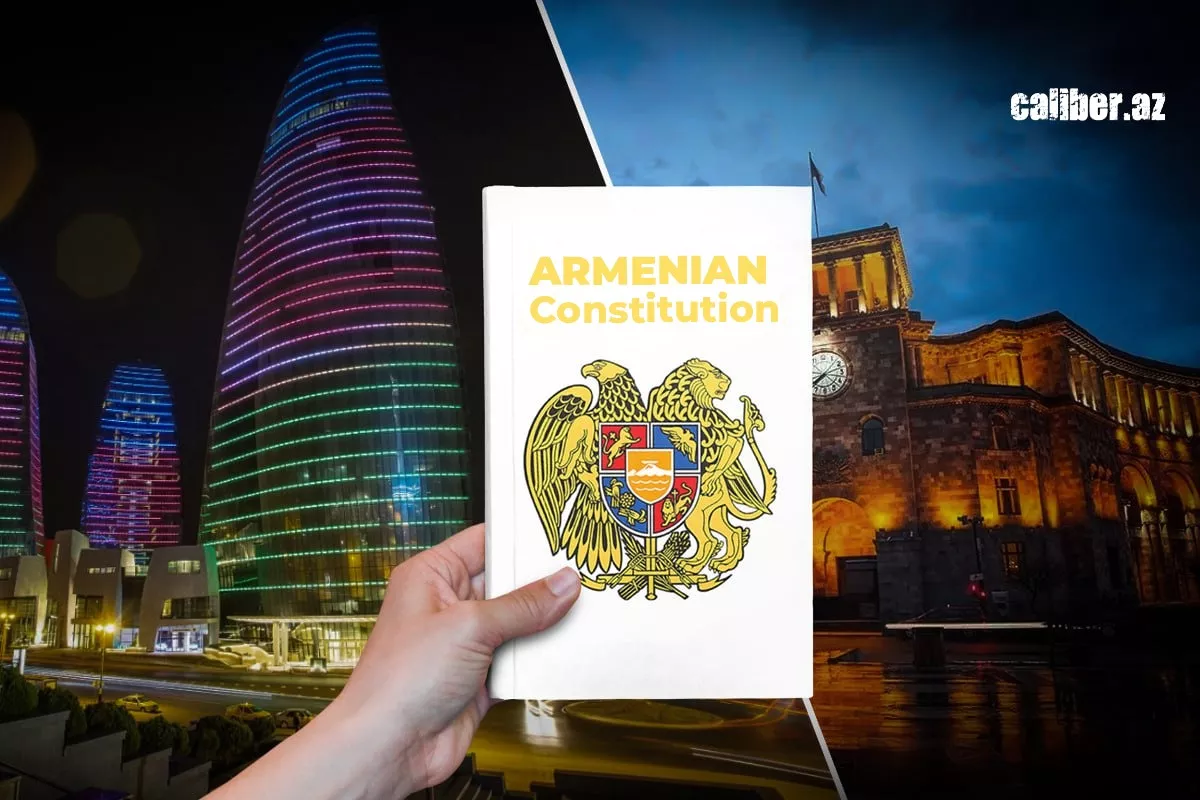Pashinyan's mixed messages on peace with Azerbaijan Rituals of Reversal
We've grown used to Armenian Prime Minister Nikol Pashinyan saying one thing, only to later say something entirely different. Often, his manipulations come full circle, bringing him right back to his original statements. It's like he's leading a never-ending round dance. And yes, we remember how fond he is of this dance—though it rarely ends well for him.
Recently, Pashinyan addressed Armenia’s National Assembly during a government session, once again making several intriguing remarks. If we rank the most noteworthy in order of importance, here’s what stands out:
First, Pashinyan outlined key elements of a potential peace agreement with Azerbaijan, including "the creation of an Armenian-Azerbaijani commission to monitor the implementation of the peace deal, the establishment of diplomatic relations, and mutual recognition of territorial integrity."
Pashinyan also touched on the topic of enclaves, stating: "The issue of enclaves in the context of relations with Azerbaijan has always been important and remains relevant. This issue is still on the agenda, and we cannot ignore it." This was in response to opposition MP Garnik Danielyan’s remark about discussions on "the transfer of the village of Tigranashen" (the Azerbaijani village of Karki in the Sadarak District of the Nakhchivan Autonomous Republic, currently occupied by Armenia).
However, the most interesting part came when Pashinyan responded to opposition MP Anna Grigoryan. She criticized the prime minister for not mentioning, in his recent UN speech, what she called the "ethnic cleansing in Nagorno-Karabakh carried out by Azerbaijan a year ago," and accused him of "abandoning Nagorno-Karabakh for political expediency."

In response, Pashinyan stated that during his UN speech, he said what he deemed necessary in line with the interests of the Armenian state. He also emphasized that for many years, the Karabakh issue had been used by various countries as a noose around Armenia’s neck, a tool to undermine Armenian statehood.
So, can we conclude that Pashinyan has made any real progress towards a peaceful resolution? Unfortunately, no. It is somewhat promising that he publicly distances himself from the Karabakh issue and even highlights its danger for Armenia. However, we cannot be sure of the consistency in this approach—Pashinyan has made similar statements before, only to later bring up allegations of so-called "ethnic cleansing."
But the crux of the matter lies elsewhere—Yerevan still shows no determination to amend its constitution, which, by referencing the Declaration of Independence, maintains territorial claims against Azerbaijan.
That said, it's not accurate to say that nothing is happening in this area. However, the actions being taken aren’t clearing the path to peace—rather, they’re cultivating new legal entanglements along the way.
Recently, Armenia’s Constitutional Court issued a ruling on the regulations of the Border Delimitation Commission, concluding that the signed document aligns with the country’s Constitution. What makes this decision particularly notable is its exploration of the relationship between the Constitution and the Declaration of Independence in the context of Armenia’s borders. One crucial point in the ruling states that national goals outlined in the Declaration of Independence, which are not reflected in the Constitution, carry no legal weight.

The Constitutional Court's ruling has already sparked an outcry among various Armenian legal experts, and what’s most intriguing is that Armenia’s Justice Minister, Grigor Minasyan, quickly resigned—likely not wanting to associate his name with the decision, despite citing other reasons for stepping down.
However, despite the uproar the Constitutional Court’s decision has caused within Armenian society, it changes little for Azerbaijan in the context of peace negotiations. There is a significant risk that the next post-Pashinyan Constitutional Court might deem this ruling politically motivated and invalidate it. Azerbaijan cannot rely on fleeting manoeuvres by the Armenian government or potential collusion with the Constitutional Court. What Baku needs is a concrete step, and that can only come in the form of removing the reference to the Declaration of Independence from Armenia’s Constitution. Once this is done, the Court’s review of the legitimacy of a future peace agreement would be a mere formality, rather than a serious obstacle.
Yerevan’s recent actions seem aimed at creating a new narrative for the international community. The message is: "We’ve done everything we can, even more than necessary, yet Baku refuses to pursue peace and makes 'absurd' demands." Notably, during his address to the UN General Assembly, Pashinyan claimed that Armenia’s Constitution does not contain territorial claims against Azerbaijan, while firmly asserting that Azerbaijan’s Constitution, in contrast, includes territorial claims against Armenia. He reinforced this narrative during a government session, stating that Azerbaijan’s "constant new demands" supposedly indicate that Baku is not interested in signing a peace agreement with Armenia.
It’s telling that after his parliamentary speech, Pashinyan headed to France to attend the Francophonie Summit. Pashinyan doesn’t speak French, and perhaps the event’s hosts would have preferred to see a suave Levantine charmer fluent in Molière’s language. But they’ll have to make do. Even with a translator, it’s clear they won’t be discussing peace with Azerbaijan.
And so, the circle continues...








